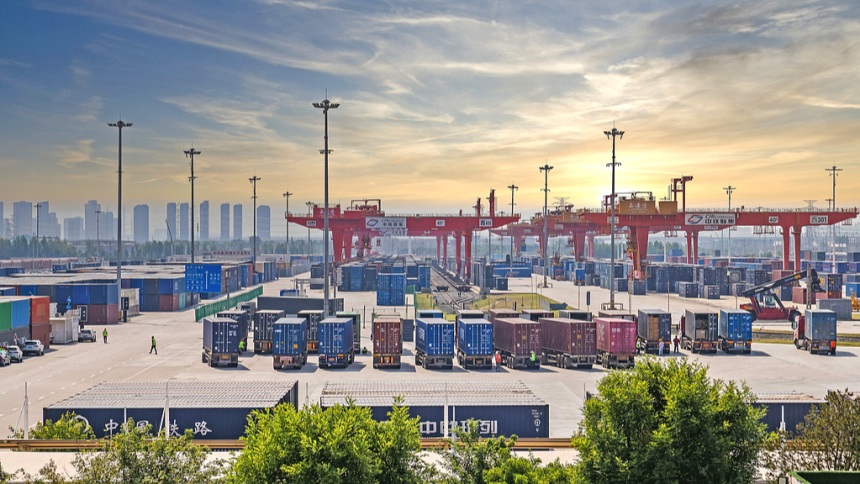China has expressed its willingness to collaborate with the European Union to counter the latest round of US tariffs, condemning the Trump administration’s measures as harmful protectionism that undermines global economic stability. This call for unity comes as China’s trade data for the first quarter of 2024 shows resilience, with exports rising by 6.9% year-on-year despite external pressures.
Foreign Ministry Spokesperson Lin Jian criticized Washington’s tariffs as a reckless misuse of trade policy, arguing that the US is placing its own interests above international rules. “This is not just an attack on China but an assault on multilateralism itself,” Lin stated, warning that such measures would damage the global economy, including European industries and consumers.
The US recently imposed steep tariffs on Chinese electric vehicles, semiconductors, and other critical exports, escalating trade tensions. Beijing insists these actions violate World Trade Organization (WTO) principles and disrupt global supply chains.
The EU, which has also faced trade pressures from the US, shares China’s concerns about unilateral tariffs. European officials have cautioned that protectionist policies risk dividing the global economy. This alignment opens the door for Beijing and Brussels to work together in defending the WTO-based trading system.
“China stands ready to join hands with all partners, including Europe, to uphold international trade rules and promote fairness and justice,” Lin said, hinting at potential joint efforts at the WTO or coordinated policy responses.
Together, China and the EU represent more than one-third of global GDP and a quarter of world trade. As the US adopts increasingly protectionist policies, both powers are positioning themselves as advocates for economic globalization. Analysts suggest that closer cooperation could involve legal challenges at the WTO, efforts to diversify trade partnerships, and negotiations on fair competition standards.
While differences remain such as the EU’s ongoing investigations into Chinese electric vehicles the shared opposition to US tariffs could pave the way for stronger Sino-European collaboration. China’s outreach to the EU reflects its broader strategy to counter US trade policies while presenting itself as a defender of the global economic order. The success of this partnership will depend on how Brussels balances its relations with both Washington and Beijing in an increasingly fragmented trade landscape.

